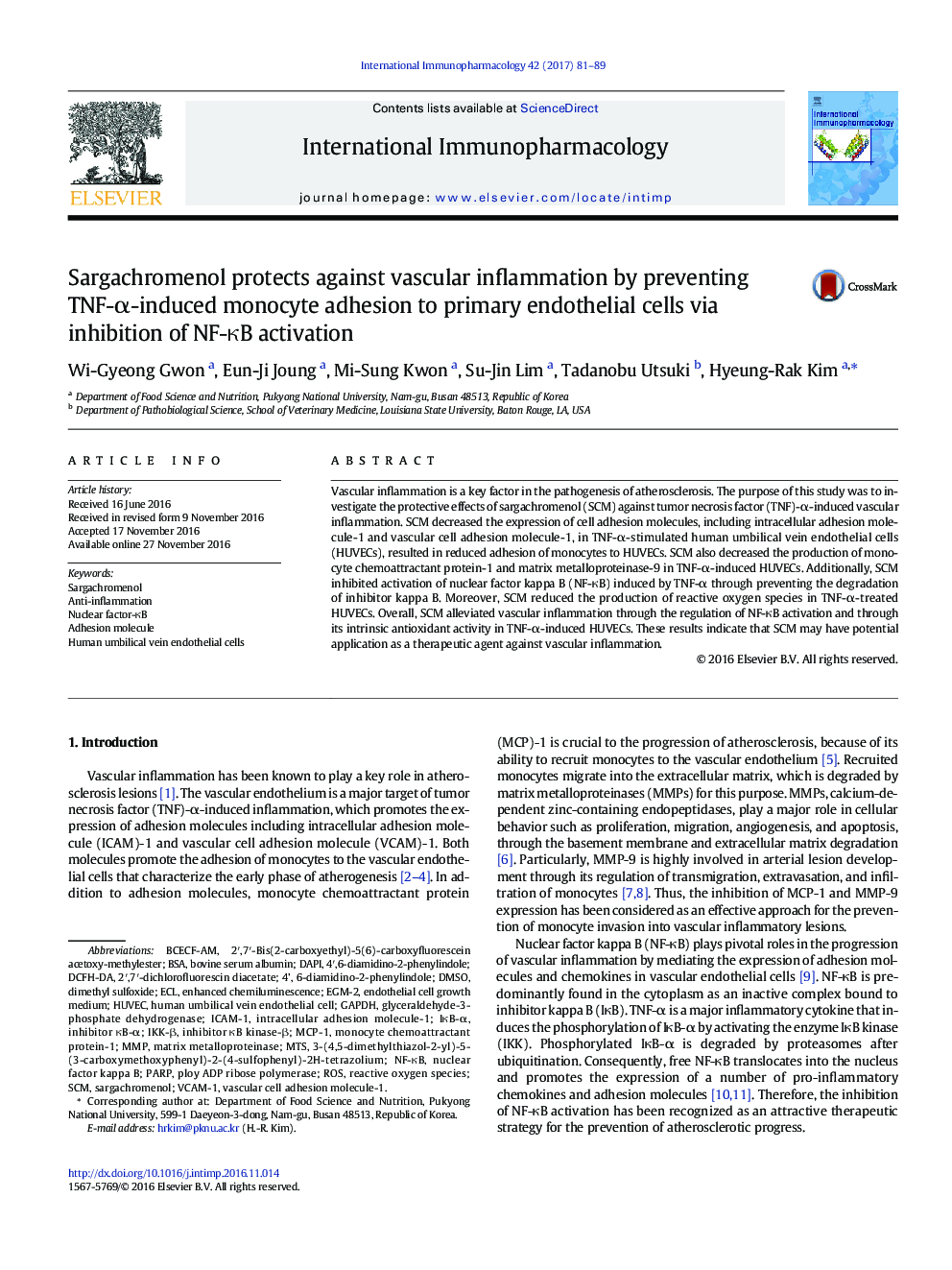| Article ID | Journal | Published Year | Pages | File Type |
|---|---|---|---|---|
| 5555534 | International Immunopharmacology | 2017 | 9 Pages |
â¢Sargachromenol (SCM) was isolated from Sargassum serratifolium.â¢SCM inhibited the adhesion of THP-1 to TNF-α-stimulated endothelium.â¢SCM inhibited the expression of ICAM-1, VCAM-1, and MCP-1 via NF-κB pathway.â¢SCM could be a novel therapeutic agent to treat vascular inflammatory diseases.
Vascular inflammation is a key factor in the pathogenesis of atherosclerosis. The purpose of this study was to investigate the protective effects of sargachromenol (SCM) against tumor necrosis factor (TNF)-α-induced vascular inflammation. SCM decreased the expression of cell adhesion molecules, including intracellular adhesion molecule-1 and vascular cell adhesion molecule-1, in TNF-α-stimulated human umbilical vein endothelial cells (HUVECs), resulted in reduced adhesion of monocytes to HUVECs. SCM also decreased the production of monocyte chemoattractant protein-1 and matrix metalloproteinase-9 in TNF-α-induced HUVECs. Additionally, SCM inhibited activation of nuclear factor kappa B (NF-κB) induced by TNF-α through preventing the degradation of inhibitor kappa B. Moreover, SCM reduced the production of reactive oxygen species in TNF-α-treated HUVECs. Overall, SCM alleviated vascular inflammation through the regulation of NF-κB activation and through its intrinsic antioxidant activity in TNF-α-induced HUVECs. These results indicate that SCM may have potential application as a therapeutic agent against vascular inflammation.
